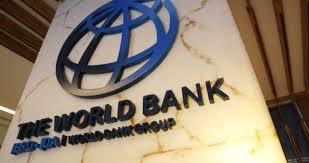….projects 2.2% yearly growth for global economy
The World Bank Group has highlighted some policy actions for Nigeria and other countries to prioritize in their development plans to avert growth slowdown in the years ahead as the global economy’s “speed limit”, the maximum long-term rate at which it can grow without sparking inflation, is set to slump to a 30-year low by 2030,
The development finance institution in its latest report titled ‘Falling Long-Term Growth Prospects: Trends, Expectations, and Policies’ canvassed the need for governments to align monetary, fiscal, and financial frameworks; ramp up investments; cut trade costs; capitalize on service sector; and increase labour force participation to sustain modest growth in their various economies.
This is even as it underscored the need to increase female labor force participation rates to the average for all emerging markets and developing economies as well as strengthen global cooperation to achieve sustained growth in the economies.
The report, which is the first comprehensive assessment of long-term potential output growth rates in the aftermath of the COVID-19 pandemic and the Russian invasion of Ukraine, indicated that nearly all the economic forces that powered progress and prosperity over the last three decades were fading.
According to the bank, as a result, between 2022 and 2030 average global potential GDP growth is expected to decline by roughly a third from the rate that prevailed in the first decade of this century — to 2.2% a year.
The report projected that for developing economies, the decline will be equally steep – from 6% a year between 2000 and 2010 to 4% a year over the remainder of this decade, adding that these declines will be much steeper in the event of a global financial crisis or a recession.
Speaking on the report’s findings, the World Bank’s Chief Economist and Senior Vice President for Development Economics, Indermit Gill, said: “A lost decade could be in the making for the global economy.
“The ongoing decline in potential growth has serious implications for the world’s ability to tackle the expanding array of challenges unique to our times—stubborn poverty, diverging incomes, and climate change.
“But this decline is reversible. The global economy’s speed limit can be raised—through policies that incentivize work, increase productivity, and accelerate investment”, Gill added
The analysis shows that potential GDP growth can be boosted by as much as 0.7 percentage points – to an annual average rate of 2.9% – if countries adopt sustainable, growth-oriented policies.
Commenting on the report’s findings, a lead author of the report and Director of the World Bank’s Prospects Group, Ayhan Kose, said: “We owe it to future generations to formulate policies that can deliver robust, sustainable, and inclusive growth.
“A bold and collective policy push must be made now to rejuvenate growth. At the national level, each developing economy will need to repeat its best 10-year record across a range of policies. At the international level, the policy response requires stronger global cooperation and a reenergized push to mobilize private capital”, the banker added.






